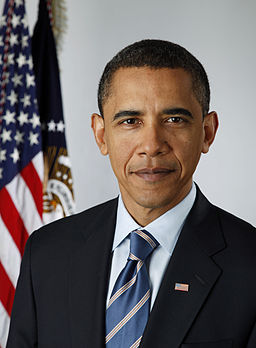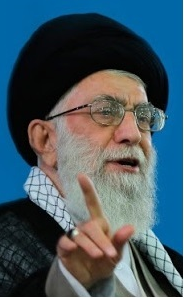Since late March, U.S. and Iranian officials have accused each other of taking actions that undermine the nuclear deal. On April 1, President Barack Obama accused Iran of not following the “spirit” of the agreement by engaging in test launches of ballistic missiles on March 8 and 9. Chief of Staff of the Iranian Armed Forces Hassan Firouzabadi countered by saying that "We studied the details of the nuclear agreement and didn’t see anything but its text, and don’t have any information about its spirit.” Although ballistic missiles are outside the scope of the nuclear deal, U.S. officials allege the launches are inconsistent with U.N. Security Council Resolution 2231, which bans Iran from testing ballistic missiles capable of carrying nuclear warheads.
Supreme Leader Ayatollah Ali Khamenei said on March 20 that “The Americans have not honored their promises," accusing Washington of only lifting sanctions "on paper." Iran still faces restrictions on certain financial transactions under remaining U.S. sanctions for terrorism and human rights violations. But State Department official Chris Backemeyer insisted that "We are a good faith partner…It is not in our interest just to sanction for no reason.” The following are recent remarks from U.S. and Iranian officials on compliance with the nuclear deal.
President Barack Obama
 “So let me say broadly that so long as Iran is carrying out its end of the bargain, we think it’s important for the world community to carry out our end of the bargain.”
“So let me say broadly that so long as Iran is carrying out its end of the bargain, we think it’s important for the world community to carry out our end of the bargain.”“Iran, so far, has followed the letter of the agreement. But the spirit of the agreement involves Iran also sending signals to the world community and businesses that it is not going to be engaging in a range of provocative actions that might scare business off. When they launched ballistic missiles with slogans calling for the destruction of Israel that makes businesses nervous. There is some geopolitical risk that is heightened when they see that taking place.
“If Iran continues to ship missiles to Hezbollah, that gets businesses nervous. And so part of what I hope happens is we have a responsibility to provide clarity about the rules that govern so that Iran can, in fact, benefit, the Iranian people can benefit from an improved economic situation. But Iran has to understand what every country in the world understands, which is businesses want to go where they feel safe, where they don't see massive controversy, where they can be confident that transactions are going to operate normally. And that's an adjustment that Iran is going to have to make as well.”
– April 1, 2016, in a press conference
Treasury Secretary Jacob Lew
“Since Iran has kept its end of the [nuclear] deal, it is our responsibility to uphold ours, in both letter and spirit.”
– March 30, 2016, in a speech
State Department Under Secretary for Political Affairs Thomas Shannon
“I believe it [the missile tests] violated the intent of [U.N. Security Council Resolution] 2231.”
– April 5, 2016, in a Senate hearing
"Any effort to step away from (the deal) would reopen a Pandora's box in that region that would be hard to close again.”
A U.S. rejection of the deal "would be grasped by hardliners in Iran to assert that we were an unreliable interlocutor” and would be seen as “a clear signal that they needed to return to their nuclear program."
– April 5, 2016, in a Senate hearing
Deputy National Security Advisor Ben Rhodes
“Thus far we have seen Iran meet its major commitments under the Joint Comprehensive Plan of Action.”
“We were also clear that they were going to continue to be engaged in behavior that we found counterproductive – ballistic missiles, support for terrorism, destabilizing activities in the region. That’s not the nuclear deal. It’s a separate set of issues on which we have the ability to respond.”
– March 31, 2016, in a press briefing
State Department Principal Deputy Coordinator for Sanctions Policy Chris Backemeyer
"We are a good faith partner…It is not in our interest just to sanction for no reason, so we're not going to be in a position where we're looking to trick someone, that's never been our objective."
"Snap-back is a mechanism that we negotiated in order to deter Iranian non-compliance, not one to give us some secret way of re-imposing sanctions on Iran because we felt like it."
– March 23, 2016, according to the press
Supreme Leader Ayatollah Ali Khamenei
In #IranDeal also US didn’t fulfill its pledges. As @JZarif said they did something on paper, but by detours barred Iran’s objectives.#JCPOA
— Khamenei.ir (@khamenei_ir) March 20, 2016
Today, our banking deals & release of our wealth have problems in west as they fear from US, while on paper they vowed lifting of sanctions.
— Khamenei.ir (@khamenei_ir) March 20, 2016
In few months US administration will change & there is no assurance next administration would implement even its few commitments in #JCPOA.
— Khamenei.ir (@khamenei_ir) March 20, 2016
US officials keep sanctions on one hand & give #Nowruz message on other hand & set Haft-Seen table in White House; these are deceptions.
— Khamenei.ir (@khamenei_ir) March 20, 2016
 “The Americans have not honored their promises and have not done what they should have. Of course, as our honorable Minister of Foreign Affairs said, they have done certain things on paper, but they have prevented the Islamic Republic from achieving its goals through many detours and short cuts.”
“The Americans have not honored their promises and have not done what they should have. Of course, as our honorable Minister of Foreign Affairs said, they have done certain things on paper, but they have prevented the Islamic Republic from achieving its goals through many detours and short cuts.”“Notice that today, in all western countries and in all those countries that are under their influence, our banking transactions have been blocked. We have a problem bringing our wealth - which has been kept in their banks – back to the country. We have a problem conducting different financial transactions which require the assistance of banks. And when we pursue the matter, follow it up and ask about it, it becomes clear that they are afraid of the Americans. The Americans have said that they would lift sanctions and they have actually done so on paper, but through other ways and methods, they are acting in a way that the result of sanctions repeal will not be witnessed at all.”
“What this political analysis of the enemy means is that if America wishes, the Islamic Republic should even forget about its own defense mechanisms. You see what uproar they have created in the world on the issue of our missiles. They say, “Why does the Islamic Republic have missiles? Why does it have long-range missiles? Why do the Islamic Republic’s missiles aim at and hit the target in a very precise manner?” They say, “Why have you carried out a military maneuver? Why do you have military exercises and why and why and why!”
“This is while the Americans themselves carry out maneuvers from time to time in the Persian Gulf – which is several thousand kilometers away from their country - and they do so along with some regional countries. They do this while they have no responsibility in the region. However, when the Islamic Republic carries out a military maneuver in its own home, in its own territory and in its own security zone, they create uproar about why we have carried out a military operation, why we have adopted such and such measures and why our Navy and our Air Force have adopted such and such courses of action.”
– March 20, 2016, in a speech
Foreign Minister Mohammad Javad Zarif
“With the serious follow-up of the Islamic Republic of Iran, the US government is obliged to execute its commitments not only in theory but in practice.”
– March 2016, according to the press
Chief of Staff of the Armed Forces Major General Hassan Firouzabadi
"We studied the details of the nuclear agreement and didn’t see anything but its text and don’t have any information about its spirit.”
"Therefore, the US arrogant expectations and excessive demands are ungrounded and unacceptable and no one in the Islamic Republic of Iran cares about them.”
– April 5, 2016, according to the press
Judiciary Chief Sadeq Amoli Larijani
"The Americans are now acting in violation of the nuclear agreement.”
– April 4, 2016, in remarks to high-ranking judiciary officials
Revolutionary Guards Commander General Mohammad Ali Jafari
“To see JCPOA a panacea and a successful solution would be naïve and imprudence; those advertising now different versions of JCPOA, primarily at home, inadvertently deviated from the true path of Revolution and tilting toward anti-Revolutionary front.”
“JCPOA provides only the least part of nation’s rights and should not and won’t be lionized as a golden chapter and a cause for exhilaration.”
– April 5, 2016, according to the press
Defense Minister General Hossein Dehghan
“I am certain that the Security Council and the United Nations will not respond, as our actions are neither a breach of the JCPOA nor are they against resolution 2231.”
“[The] Americans are basically against any increase in the national power of the Islamic Republic of Iran, in any dimension.”
– March 31, 2016, according to the press
Head of the Atomic Energy Organization of Iran Ali Akbar Salehi
"Legally speaking, there is a possibility that the other side misuses a point in the nuclear deal, but the document enjoys such an integrity and power that the other side doesn’t allow itself to create any problems.”
"I firmly announce that we act upon the Supreme Leader (Ayatollah Khamenei)'s views in a way that if the other side does not comply with its undertakings appropriately, we will show a proper reaction."
– April 6, 2016, according to the press
